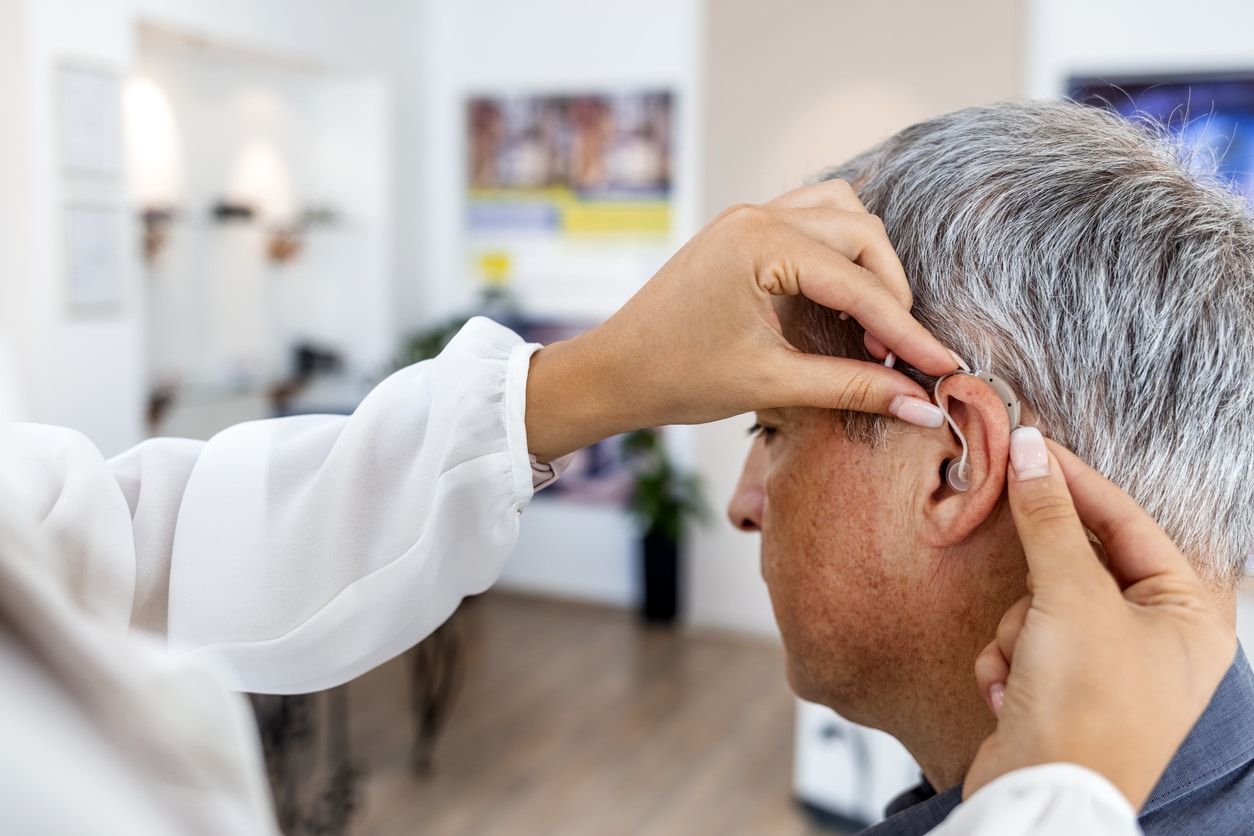Being proactive about protecting our hearing is essential, but sometimes, even with the best efforts, changes can sneak up on us. That’s why keeping an eye—or an ear—on our hearing health is so important. Hearing loss isn’t selective; it can happen even with preventive actions in place. If you notice any shifts in your hearing, reaching out to a hearing professional is a wise move to safeguard your auditory well-being. Let’s explore how we can recognize these changes and what steps to take for ongoing hearing health.
Hearing Loss Comes in Many Shapes and Sizes

Hearing loss can arise from aging, loud noise exposure, viral illnesses, ototoxic medications, genetics, physical trauma and more. While hearing loss can develop suddenly, often due to exposure to hazardous noise levels, many cases progress gradually.
What Are the Signs of Hearing Loss?
On average, a person with hearing loss will take seven years to begin seeking treatment. The reasons for this considerable waiting period vary from person to person but may include:
- Feelings that their hearing loss isn’t severe enough for treatment
- Concerns that treatment won’t be effective
- Feeling that they can cope with hearing loss on their own
- Not noticing the signs of hearing loss early on
Untreated hearing loss can adversely affect your mental health, relationships, mood, safety and more. Paying attention to the signs of hearing loss and scheduling regular hearing tests will allow you to take advantage of the benefits of treatment as soon as possible.
Symptoms of hearing loss may include:
· Muffling of speech and other sounds.
· Trouble understanding words, especially when in a crowd or a noisy place.
· Trouble hearing the letters of the alphabet that aren’t vowels.
· Often asking others to speak more slowly, clearly, or loudly.
· Turning up the volume of the television or radio.
· Stepping back from social settings.
· Being bothered by background noise.
· Ringing in the ears, known as tinnitus.
How Can You Maintain Good Hearing Health?
You cannot prevent all causes of hearing loss. Often, genetics and aging cause irreversible hearing loss. However, maintaining good hearing health can go a long way in protecting against hearing loss. A couple of practical ways you can care for your hearing include:
- Get frequent hearing tests. Many people have not had a hearing test since grade school. Scheduling annual tests will help your hearing experts track your hearing loss over time. Tracking hearing loss over time will give you a head start on your treatment. Starting treatment early will help prevent the adverse side effects associated with hearing loss.
- Wear hearing protection. It doesn’t always take loud explosions or blaring concerts to cause hearing loss. The Centers for Disease Control defines the threshold for hearing loss as anything above 70 dB for a prolonged period or above 120 dB immediately. For comparison, city traffic commonly reaches 80-85 dB, and personal audio devices will max out at 105 to 110 dB. Wearing ear protection and lowering the volume of your devices will go a long way in protecting your hearing.
- Don’t put anything in your ears. You should not put anything larger than your elbow into your ears. Attempting to remove earwax or small objects from your ears without professional help can quickly damage the hearing mechanisms. Rather than trying to remove wax or small things yourself, schedule an appointment with an expert for professional assistance.
For more information on maintaining good hearing health or if you have hearing concerns, call our care team at Midwest Hearing today.
